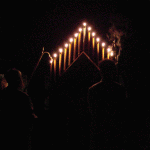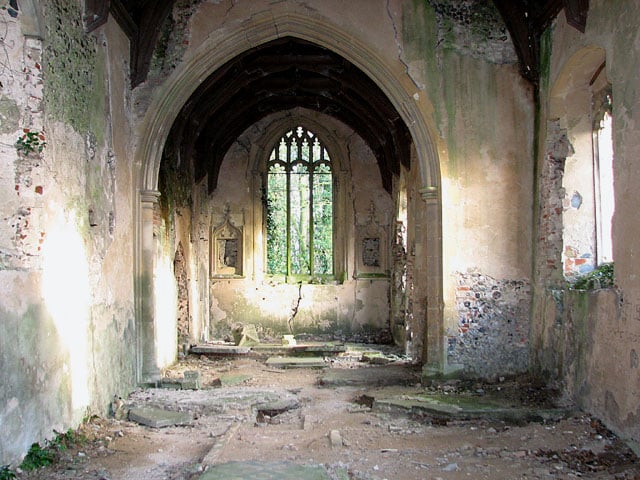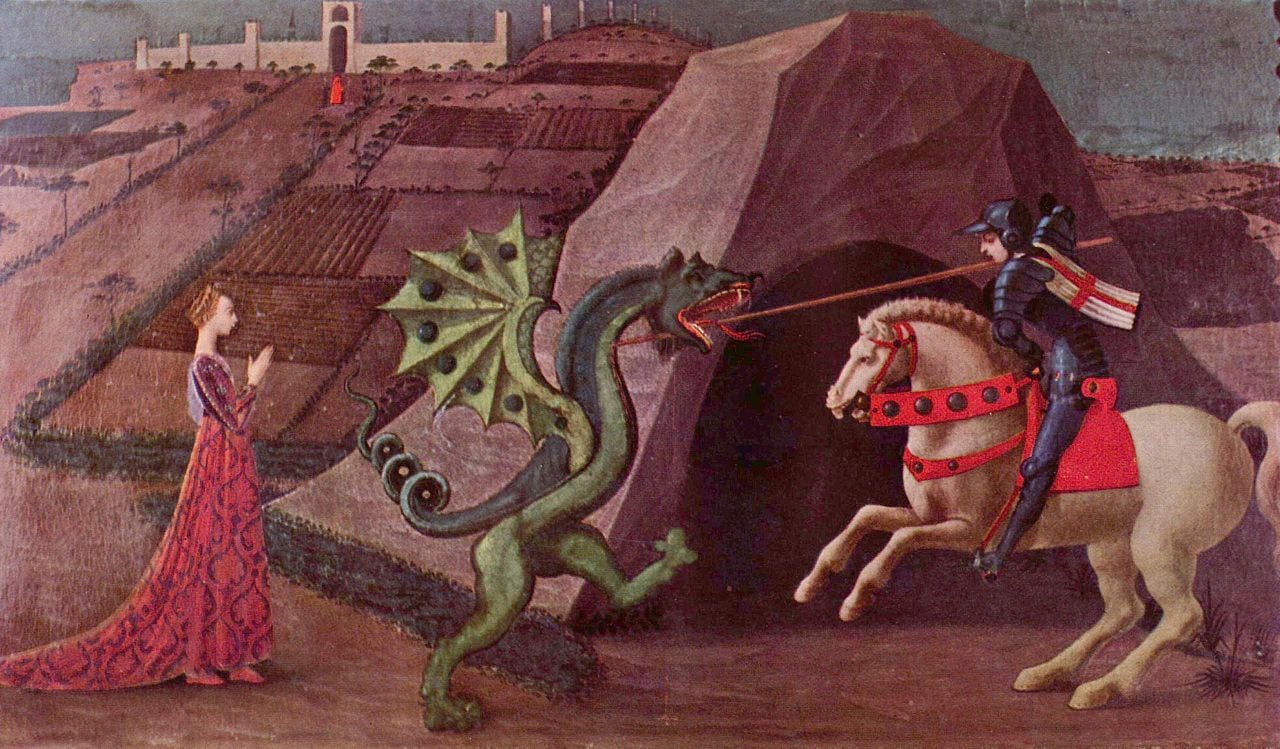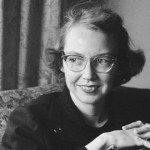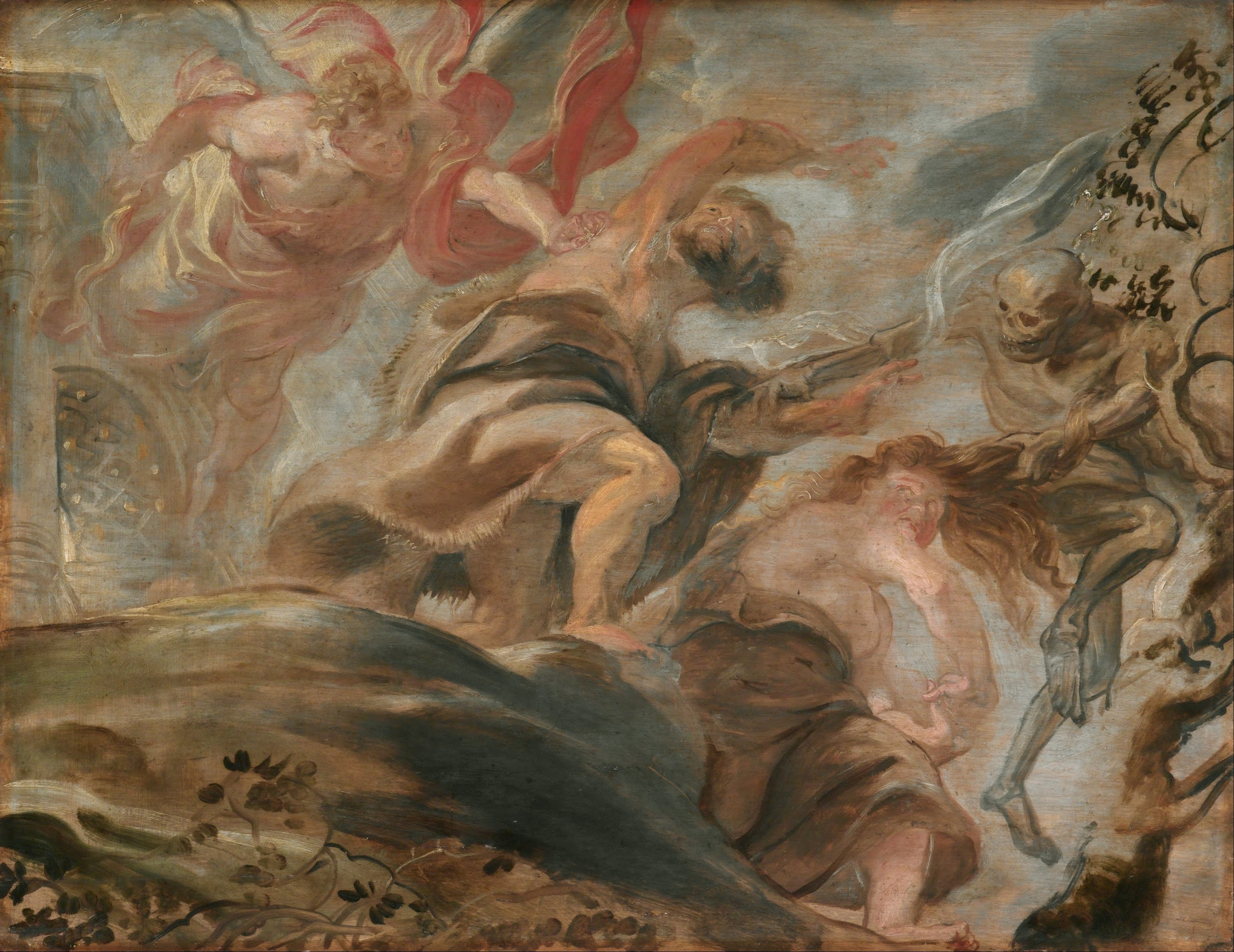
[Editor’s Note: This essay is Part 2 of a series on C.S. Lewis’ Space Trilogy. Perelandra is the second book following Elwin Ransom’s journey which began in Out of the Silent Planet. The essay series will end next week with the author’s analysis of Lewis’ third book That Hideous Strength.]
The Fall is one of the seminal events of man’s relationship with God–and one of the most perplexing. That an omnipotent, omniscient God permitted man to sin against His will raises questions even fervent believers have surely pondered. Was the Fall necessary? Was it preventable? Of what did it deprive mankind?
C.S. Lewis raises these and other questions in Perelandra, his sequel to Out of the Silent Planet, which relates the experience of Elwin Ransom, the protagonist of Silent Planet, on Perelandra (a.k.a., Venus). Perelandra is a young, innocent world–a prelapsarian Eden. But a foreign evil has invaded this world in the hope of ending its innocence. And it is an evil Ransom himself must confront.
Ransom’s joining the creation myth of a new world addresses some of the theological issues surrounding our own beginnings. Given the centrality of Genesis to the Theology of the Body, moreover, Perelandra also bears out important aspects of John Paul II’s Theology of the Body, especially in the novel’s treatment of man’s original state and man’s relation to God.
From the moment Ransom arrives on Perelandra, he welcomes an intense satisfaction that on Earth he would have considered sinful excess, confirming Perelandra’s Edenic status. Exploring this pristine world of soft, floating islands in a vast sea, he feels almost over-content. Fruit so bursts with taste that he feels no need for another. Sleeping on the ground refreshes him. Every animal he encounters is docile. So profound is his pleasure that he is “…haunted, not by a feeling of guilt, but by surprise that he had no such feeling. There was an exuberance or prodigality of sweetness about the mere act of living which our race finds it difficult not to associate with forbidden or extravagant actions.” Thus does Ransom recoil from his first sight of a dead animal (murdered by an evil invader), a common sight on Earth that becomes on this world like “…a blow to the face” or “…the first spasm of a well-remembered pain warning a man who thought he was cured that his family have deceived him and he is dying after all” or…“the first lie from the mouth of a friend on whose truth one was willing to stake a thousand pounds.” Though the sight is a but a foretaste of the evil that seeks to leave its mark on Perelandra, it punctures this Paradise.
And as the world is uncorrupted, so is the Queen, for she is the only inhabitant with whom Ransom interacts for much of the novel. The Queen is this Eden’s Eve, and she displays many of the characteristics John Paul II identifies as belonging to Original, prelapsarian man. Imbued with original innocence, she lacks shame, going about the planet naked. Ransom himself also goes about naked and feels neither shame nor desire: both were “a thousand miles away from his experience…” Disputing a characterization of his Perelandran existence as “sexless innocence,” Ransom protests that, in an innocent world, that would be “about as good a description…as it would be to say that a man had forgotten water because Niagara Falls didn’t immediately give him the idea of making it into cups of tea.” The disordered–or, in John Pauline terms, disintegrated–desires of postlapsarian man simply do not affect him.
The Queen also exists in what JPII would call a state of original solitude. During her discussions with Ransom, she does not understand the very concept of loneliness, plaintively asking “What is alone?” For though she exists technically alone in the world, she does not feel that way, as she maintains a direct relationship with Her Creator. “‘There is nothing now between us and Him,’” she says. He gently guides her along a version of the same pedagogy by which, John Paul II tells us, God first instructed man.
But, as on Earth, the Evil One wishes to corrupt all of this. Out of the Silent Planet revealed that man’s fall on Earth bound the one we would call Lucifer there. But he has found another vessel in Weston, the antagonist of Silent Planet, who has replaced his human supremacist interplanetary imperialism with an amoral support of what he considers the universe’s spiritual life-energy (34 years before Star Wars, he calls it “the Force”). Weston perversely believes that this Force transcends our notions of good and evil by its sheer energy and willpower, and, upon arriving on Perelandra, calls it into himself. This provides an entry point for the Evil One, and allows Weston to serve as its vessel in its attempt to bring another world away from God. Its temptations take many forms, but its most prominent–questioning obedience–echoes Eden, and reveals much about the Theology of the Body.
The Evil One attempts to flatter the ego of the Queen by questioning whether she truly must obey a command given to her, seeking to disrupt the gentle pedagogy by which Maleldil, her Creator, guides her by introducing doubt in her Creator’s apparent designs. Whereas the Queen assumes that she has received instruction never to reside on the Fixed Land, the only solid ground on this planet, because it is the apparent, obvious will of her Creator, the Evil One, whom Ransom comes to call the Un-Man, suggests just the opposite. Why would Maleldil forbid her from residing there, but not forbid her from thinking about it? Why would she be forbidden from a place that appears to be good? “For how could Maleldil not command what was good? There is no good in it. Maleldil Himself is showing you that, this moment, through your own reason. It is mere command, it is forbidding for the mere sake of forbidding…In order that you may break it…Is not Maleldil showing you as plainly as He can that it was set up as a test…?” Turning the gentle, voluntary logic of her Creator’s pedagogy on its head via “the idea that He might not really wish to be obeyed to the letter” becomes “the sluice through which the whole flood of suggestion had been admitted to her mind,” possibly bringing the whole planet into his domain of sin. Additional assaults come via her vanity and by trying to introduce her to the “liberated” women of Earth, purportedly oppressed by a patriarchy filled with men such as Ransom. This method of temptation directly parallels the Serpent’s tempting of Eve with the possibility to be like God.
And it proves rather seductive. In vain does Ransom counter with a treatment of obedience that resembles John Paul II’s analysis of merging eros and ethos in his Theology of the Body:
“I think He made one law of that kind in order that there might be obedience. In all these other matters what you call obeying Him is but doing what seems good in your own eyes also. Is love content with that? You do them, indeed, because they are His will, but only because they are His will. Where they are His will, but only because they are His will. Where can you taste the joy of obeying unless He bids you do something for which His bidding is the only reason?”
Obedience to God is best understood, in other words, not as fear, but as a combination of reason and emotion. Though the Un-Man does not initially succeed, he makes significant headway.
He is assiduous and persistent in his temptations, however, and does not relent. Thus Weston, after much reflection, realizes his mission: He simply must kill him. In this instance, Lewis’ account of Adam and Eve on Perelandra absorbs an element of Cain and Abel. In the course of his introspection, Ranson must confront the perniciously effective arguments of the Un-Man. When Ransom coaxes the Un-Man’s flattery of disobedience to its logical conclusion, the latter embraces it, noting the apparent progress that resulted from the Fall, and reminds Ransom that “…it was this breaking of the commandment which brought Maleldil to the world and because of which He was made man…” In other words, without the first sin, there would have been no Christ.
Ransom struggles with this argument, wondering why or even whether it is incumbent upon him to prevent Perelandra’s Fall. For if God redeemed man on Earth, why could he not redeem the creatures of Perelandra? And yet he realizes that, though God became Man because of sin, this was not the good that God had prepared for man. “That is lost for ever. The first King and first Mother of our world did the forbidden thing; and He brought good of it in the end. But what they did was not good; and what they lost we have not seen.” Though good came of it eventually, and the great good will come of it in the end, it was not God’s original plan for man and deprived him of the graces of his Original State. Thus does Ransom’s agonizing over his mission end; for so long he had wondered: “Had Hell a prerogative to work wonders? Why did Heaven work none?” His conclusion: “He himself was the miracle.” He was sent to Perelandra to answer that greatest of what-ifs, to prevent a recurrence of the Fall on another world.
With this confidence, Ransom performs the deed–wounding his heel in the process, in an echo of the Protoevangelion (“He shall bruise your head; you shall bruise his heel”)–and learns afterward from the very essences of Perelandra that he acted rightly. Because of Ransom, the gentle pedagogy on which her Creator guided the Queen (and the King, mostly absent from this drama) is able to play out in full. And so the King and the Queen assume their place at the very head of the world they rule from the Fixed Land, in full physical and spiritual communion with it and each other. The spirits who had helped Maleldil guide them to that point describe the process thus:
“It is like when the children of a great house come to their full age. Then those who administered all their riches, and whom perhaps they have never seen, come and put all in their hands and give up their keys.”
The guiding spirits also explicitly compare what happened on Perelandra to what happened on Earth:
“To-day for the first time two creatures of the low worlds, two images of Maleldil that breathe and breed like the beasts, step up that step at which your parents fell, and sit in the throne of what they were meant to be. It was never seen before. Because it did not happen in your world a greater thing happened, but not this. Because the greater thing happened in Thulcandra, this and not the greater thing happens here.”
Thus does Ransom save from sin one of the first worlds to have come into being after God became Man on Earth, saving God the trouble of having to do something different of comparable magnitude on Perelandra. The world that Ransom allows Perelandra to remain contains inhabitants who exist as the full, uninterrupted maturations of the beings we on Earth would have been had we not become Historical Man, and which the Recapitulation will make us again: without sin, without shame, without improperly balanced desire–in short, paragons of John Paul’s teaching.
Lewis tells this story in Perelandra not to chastise man for having fallen short of this, (an unfortunate consequence of God creating us not as automatons but as free beings). He instead, wants to remind us what we at our best can be, and to encourage us to pursue that ideal. Lewis also uses Perelandra to recall God’s promise, despite the setback of the Fall, to make us whole again in the end.
***
Jack Butler, a 2015 graduate of Hillsdale College, is a writer living in Washington, D.C.
Featured cover image courtesy of youtube.com


